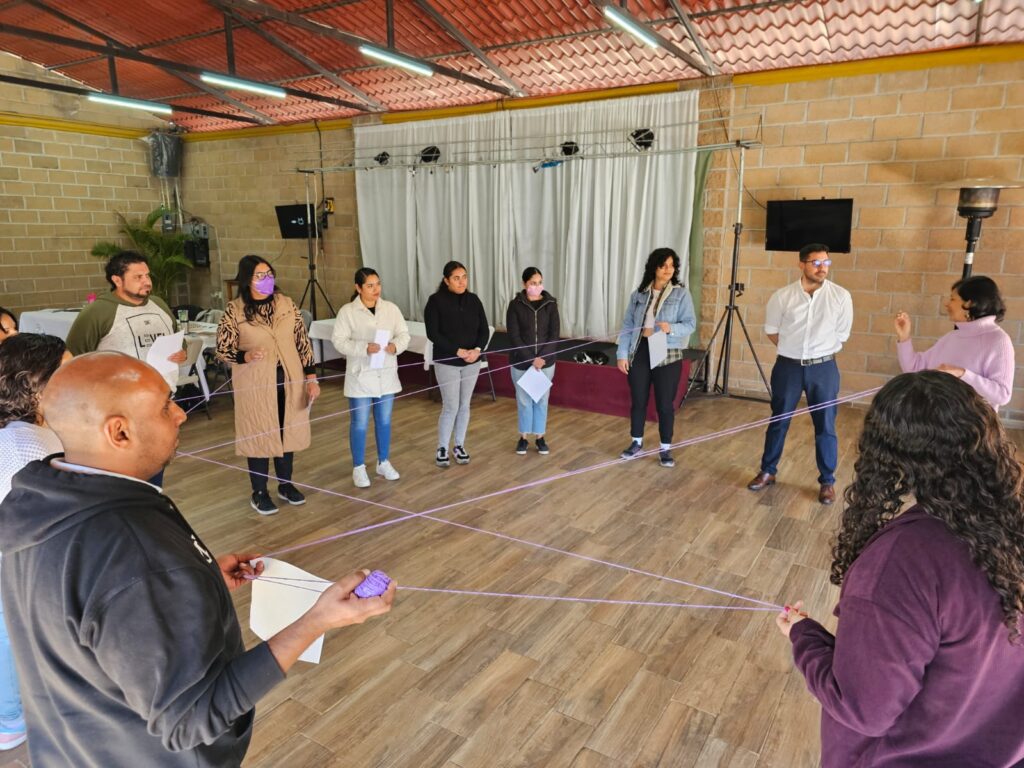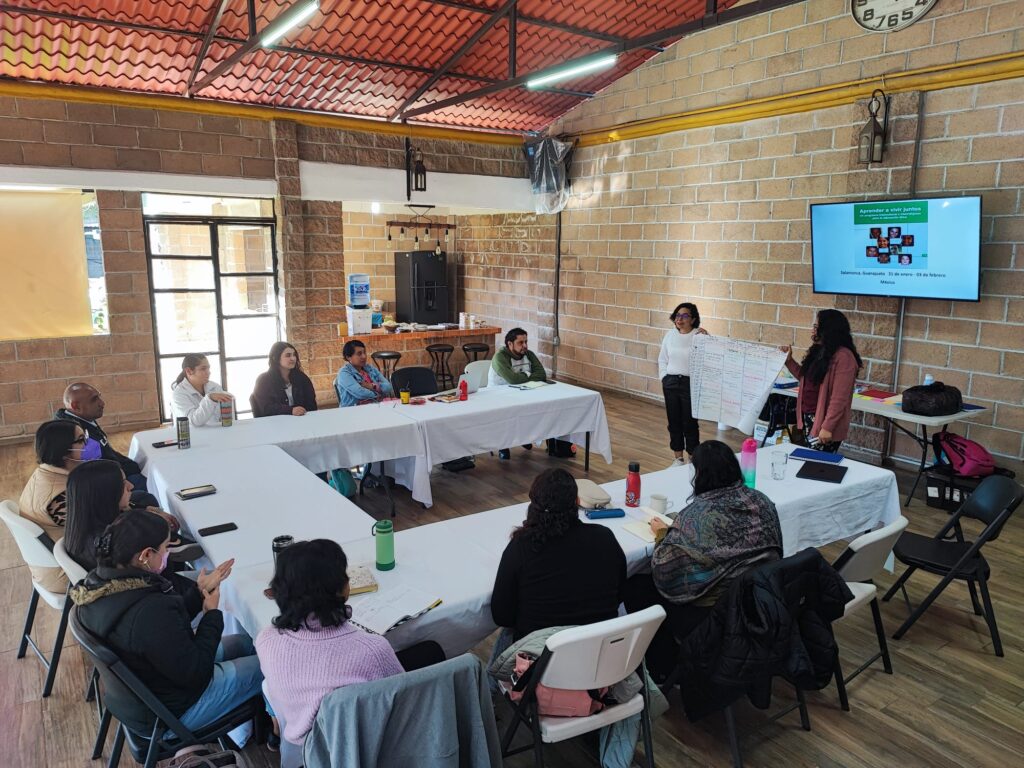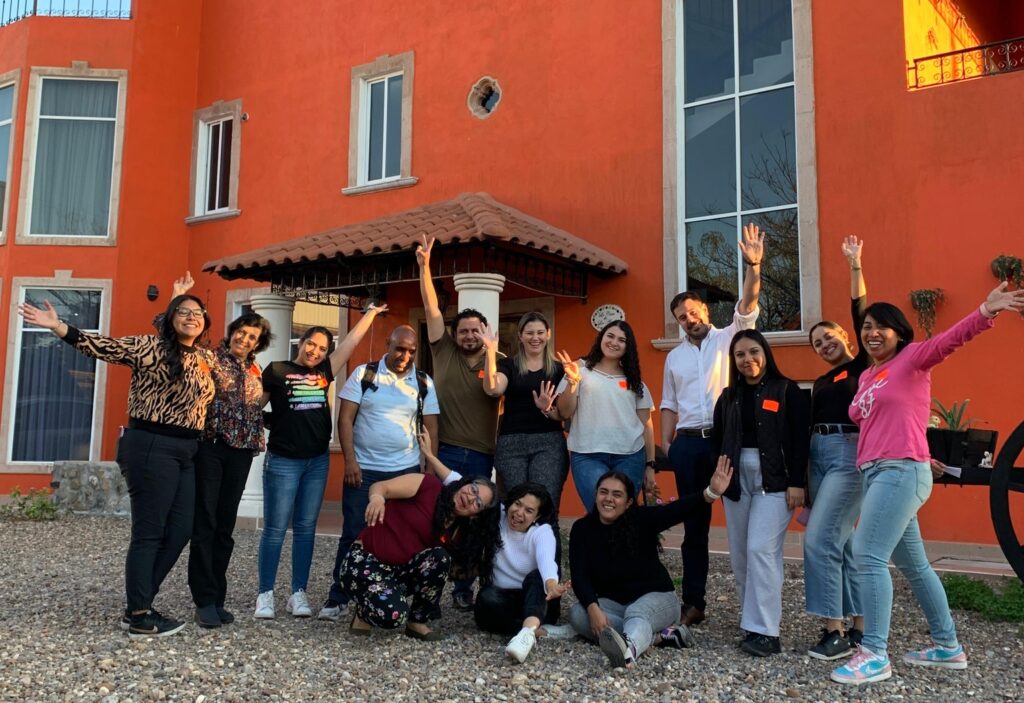A new chapter in ethics education began in Salamanca, Guanajuato, as 15 facilitators participated in a Learning to Live Together training workshop. The event, held in collaboration with the Secretary of Education of Guanajuato (SEG) and ‘Comunidad FAST’ (Faith, Social Action and Transformation), marks a significant effort to foster social and emotional skills among young students.
The workshop, held from January 31 to February 3, 2025, is part of a strategic initiative to foster safe learning environments, protect children from violence and promote their holistic well-being. Facilitators trained during this workshop will implement the Learning to Live Together program in 28 public schools across Salamanca throughout the school year, reaching more than 5,000 young people aged 12 to 15. Salamanca was specifically chosen due to its high levels of violence, organized crime, and child recruitment, making this initiative a crucial step in promoting peace and safety for children and adolescents.
Facilitated by Mr. Francisco Vila, Head of Programs, and Ms. Silvia Correa, Consultant on Ethics Education, both from Arigatou International – Geneva, the workshop was organized with the support of GNRC México under the leadership of Ms. Sandra Cazares, Pastor and Founder of ‘Comunidad FAST.’

The training aimed to equip educators, youth leaders, and social workers with essential methodologies and resources to implement ethics education programs effectively within their communities. By the end of the workshop, participants had developed a profound understanding of the core concepts, methodologies, and educational approach of Learning to Live Together, enabling them to refine their teaching strategies and create meaningful learning experiences.
Ms. Cesia Espinoza, a workshop participant, reflected on her experience: “I arrived at the facilitator workshop expecting to receive tools to implement the program, and while I did gain those, it was also a transformative experience that reconnected me with my spirituality. It showed me how, through ethical values, we can plant the seeds of change in our surroundings.” This sentiment was echoed by Ms. Patricia Restrepo, who added, “This experience has enriched me and strengthened my conviction in the methodology and philosophy of working for children and adolescents from a holistic perspective, rooted in spirituality—starting from within ourselves.”
Ms. Teresa Castellanos, an official from SEG and President of EduPaz, visited the workshop and engaged in a dialogue with the participants. She shared insights on the pressing issues of violence affecting children and adolescents in the region, fostering an open discussion on the role of education in addressing these challenges. Inspired by her words, many participants reaffirmed their commitment to fostering safe spaces for young learners. They engaged in thoughtful discussions on the impact of violence on children and adolescents, emphasizing the transformative role of values-based education in challenging environments.

Through interactive sessions and reflective exercises, participants gained the knowledge and skills needed to design ethics education programs tailored to their specific contexts. Additionally, the sessions provided valuable insights into monitoring and evaluation tools, ensuring the sustainability of the initiatives.
“I am convinced that we will reach many lives and homes, paving the way for a better world based on love, empathy, respect, and reconciliation—fundamental values both for the foundation and society, which need to be strengthened and, most importantly, lived,” reflected Ana Laura Aguilera at the end of the workshop.
Following the training, teachers will bring this program to life, inspiring adolescents to become changemakers in their communities. By fostering creativity and leadership, students will not only develop meaningful projects but also amplify their voices, take ownership of their spaces, and lead transformative initiatives that shape a brighter future for themselves and those around them.
“We don’t see Learning to Live Together as a project with a start and end, but rather as an ongoing element that strengthens our work as a faith-based community, allowing us to offer true guidance to adolescents,” explained Sandra Cazares when discussing the next steps. “It was a deeply enriching experience that encouraged us to connect with ourselves, with God, and with our communities. It equipped us to foster empathy, methodically address conflict resolution, self-esteem, and peacebuilding, critically analyze injustices, and, most importantly, it mobilized us into action.”
Salamanca is currently considered a priority area by the State of Guanajuato due to its high levels of violence and school dropout rates. Through ethics education and intercultural and interfaith learning, this workshop represents a powerful step toward building pathways to peace and creating safe spaces for young people in Salamanca and beyond.


